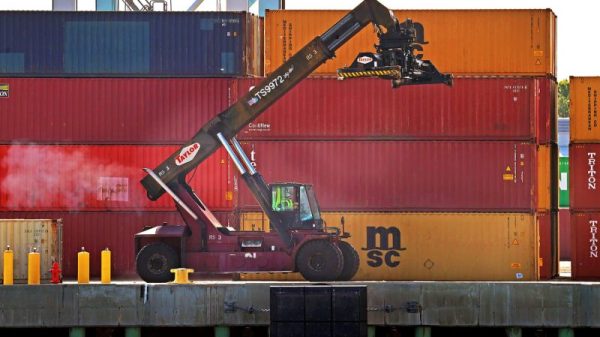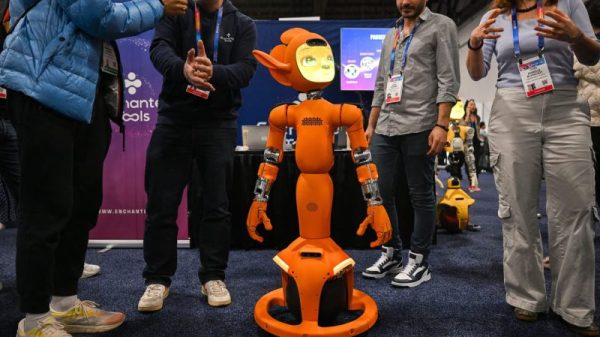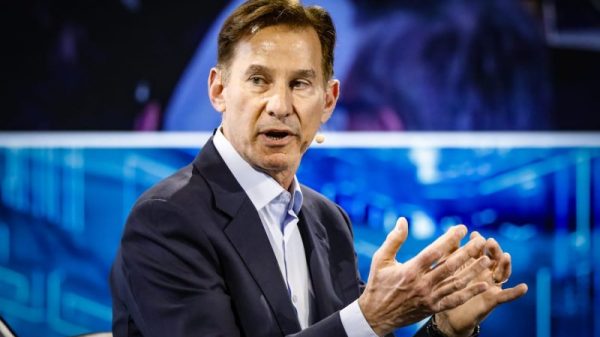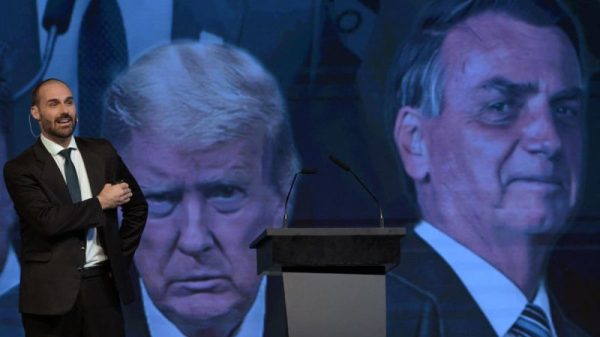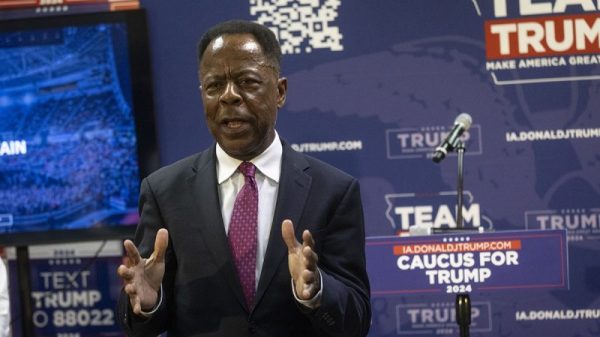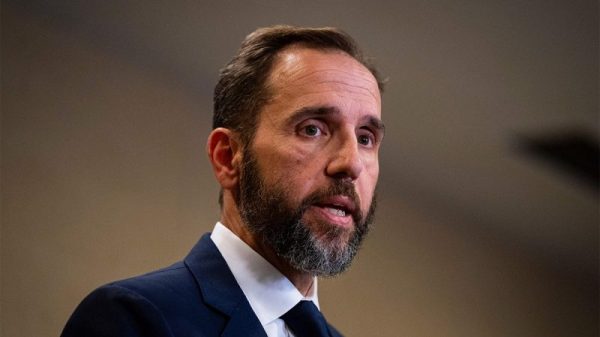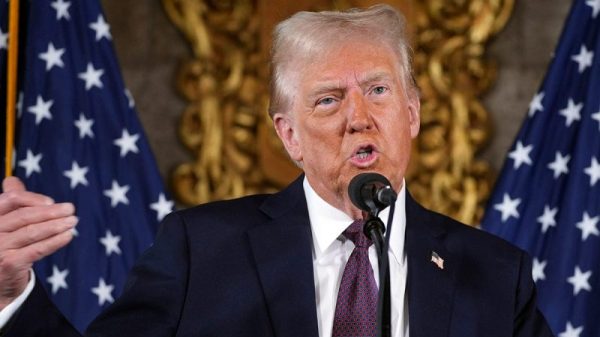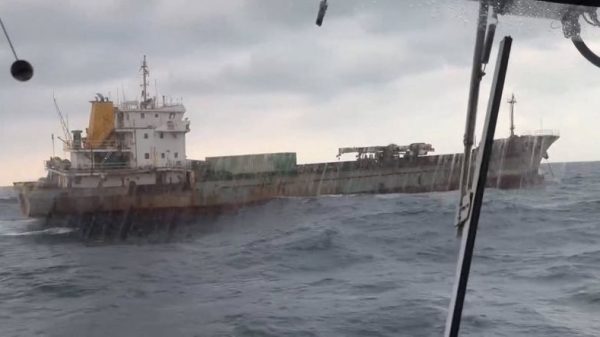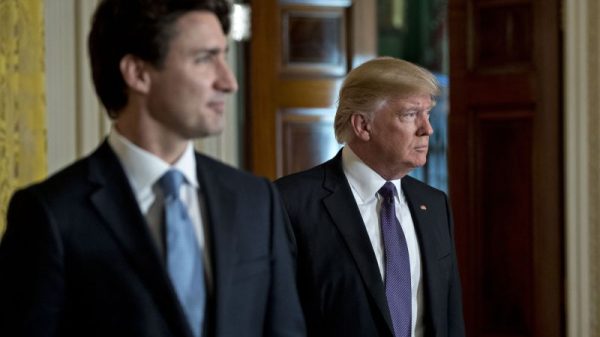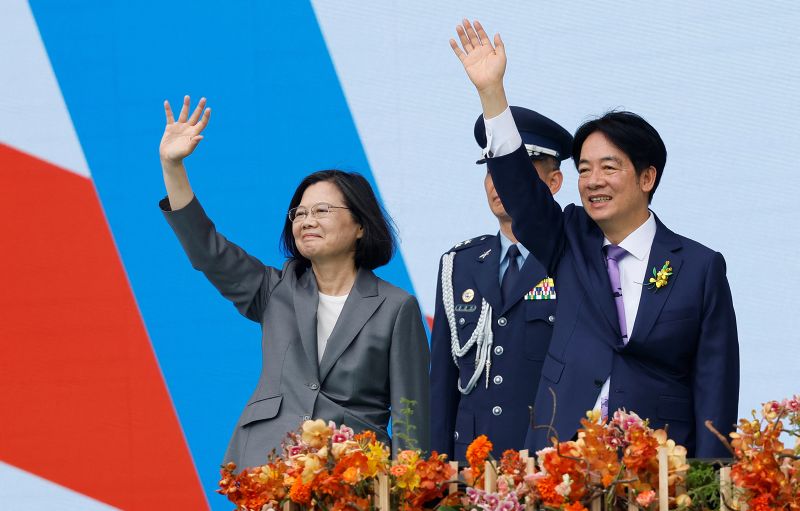Taiwan President Lai Ching-te called on Beijing to cease its intimidation of the democratic island after he was was sworn in as president Monday, marking the start of a historic third consecutive term for the ruling Democratic Progressive Party (DPP), which has championed democracy in the face of years of growing threats from authoritarian China.
Lai, 64, a former doctor and vice president, was inaugurated alongside new Vice President Hsiao Bi-khim, who recently served as Taiwan’s top envoy to the United States.
Both leaders and their party are openly loathed by Beijing for championing Taiwan’s sovereignty. China’s ruling Communist Party says the self-ruling democracy is part of its territory, despite never having controlled it, and has vowed to take the island, by force if necessary.
Lai used his 30-minute inaugural speech to broadcast a message of peace and declare that a “glorious era of Taiwan’s democracy has arrived,” describing the island as an “important link” in a “global chain of democracies,” while reiterating a determination to defend its sovereignty.
“The future of the Republic of China Taiwan will be decided by its 23 million people. The future we decide is not just the future of our nation, but the future of the world,” Lai said, using the formal name for Taiwan.
Lai takes up the mantle from his DPP predecessor Tsai Ing-wen, who bolstered the island’s international standing and recognition during her eight years in office. Tsai, Taiwan’s first female president, was unable to stand again because of term limits.
Lai emerged victorious over rivals in the opposition Kuomintang (KMT) party and the Taiwan People’s Party in a January election, which was fought over a mixture of livelihood issues as well as the thorny question of how to deal with its giant one-party state neighbor, China, which under leader Xi Jinping has grown more powerful and bellicose.
Then, voters shrugged off warnings from Beijing that the DPP’s re-election would increase the risk of conflict. The DPP holds the view that Taiwan is a de facto sovereign nation that should bolster defenses against China’s threats and deepen relations with democratic countries.
In his inaugural address, Lai called on China “to cease their political and military intimidation against Taiwan, share with Taiwan the global responsibility of maintaining peace and stability in the Taiwan Strait as well as the greater region, and ensure the world is free from the fear of war.”
A soft-spoken political veteran, Lai hails from a more radical wing of the DPP, and was once an open supporter of Taiwan independence – a red line for Beijing.
Though his views have tempered since then, China never forgave him for his comments from six years ago, in which he described himself as a “practical worker for Taiwan independence.”
Lai has now said he favors the current status quo, proclaiming that “Taiwan is already an independent sovereign country” so there is “no plan or need” to declare independence, in a deliberately nuanced stance that mimics the one held by outgoing Tsai.
When asked about Lai’s inauguration in a regular briefing Monday, a spokesperson for China’s Foreign Ministry said “Taiwan independence is a dead end. No matter what pretext or banner one uses, promoting Taiwan independence and secession is doomed to fail.”
Lai’s inauguration ceremony was attended by national leaders from a handful of countries with which Taiwan still maintains formal diplomatic ties, several former American officials, and lawmakers from other countries, according to Taiwan’s Ministry of Foreign Affairs.
In a statement, US Secretary of State Antony Blinken offered his congratulations to Lai and “the Taiwan people for once again demonstrating the strength of their robust and resilient democratic system.”
“We look forward to working with President Lai and across Taiwan’s political spectrum to advance our shared interests and values, deepen our longstanding unofficial relationship, and maintain peace and stability across the Taiwan Strait,” Blinken said.
Frictions with Beijing
Lai takes office during a particularly contentious period between Taiwan and China, which in recent years has ramped up diplomatic, economic and military pressure on the self-governing democracy as Taiwan’s leaders tightened informal ties with Washington.
In his inaugural address, Lai said he hoped China would “face the reality of the Republic of China’s existence, respect the choices of the people of Taiwan,” and “engage in cooperation with the legal government chosen by Taiwan’s people.”
He called for the resumption of tourism on a reciprocal basis and enrollment of degree students in Taiwanese institutions as steps to “pursue peace and mutual prosperity.”
But the new president also warned against harboring delusions, even as Taiwan pursues “the ideals of peace.”
“So long as China refuses to renounce the use of force against Taiwan, all of us in Taiwan ought to understand, that even if we accept the entirety of China’s position and give up our sovereignty, China’s ambition to annex Taiwan will not simply disappear,” Lai said.
Beijing has sought to portray Lai as inciting conflict, repeatedly framing the elections earlier this year as a choice between “peace and war.”
On Monday, China’s Taiwan Affairs Office reiterated that rhetoric, slamming “the leader of the Taiwan region” as “sending dangerous signals of seeking independence, provocations and undermining peace and stability across the Taiwan Strait.”
Xi has placed “reunification” with Taiwan as a key part of his goal to achieve China’s “natural rejuvenation.” But under the strongarm tactics of his more than one decade in power, Taiwan’s public has shifted determinedly away from China. Less than 10% now support an immediate or eventual unification, and less than 3% identify primarily as Chinese.
The majority of Taiwanese want to maintain the current status quo and show no desire to be ruled by Beijing.
Beijing has cut official contact with Taipei since Tsai took office. Unlike the opposition KMT, Tsai and the DPP refused to endorse the so-called “1992 consensus” that both Taiwan and the mainland belong to “one China,” but with different interpretations of what that means. Beijing, which deems the tacit agreement a precondition for dialogue.
Official communication between Beijing and Taipei is unlikely to resume as Lai takes office – with China repeatedly rebuking his offer for talks and denouncing him as a dangerous separatist.
Lai is also set to face challenges – and scrutiny – in pushing through his agenda for Taiwan in parliament during his term.
Unlike his predecessor, Lai will not have a parliamentary majority in the next four years. In January’s election, the ruling Democratic Progressive Party only won 51 out of 113 seats.
Those challenges were on show last Friday, when Taiwanese lawmakers’ disagreements over new, controversial reform bills erupted in a brawl on the parliamentary floor – a chaotic display that saw some lawmakers leaping over tables and pulling colleagues to the floor, with a few members taken to hospital.
In his address, Lai said that “a lack of absolute majority means that the ruling and opposition parties are now all able to share their ideas, and that we will be undertaking the nation’s challenges as one.”
But he also called for cooperation so Taiwan could “continue down a stable path.”






